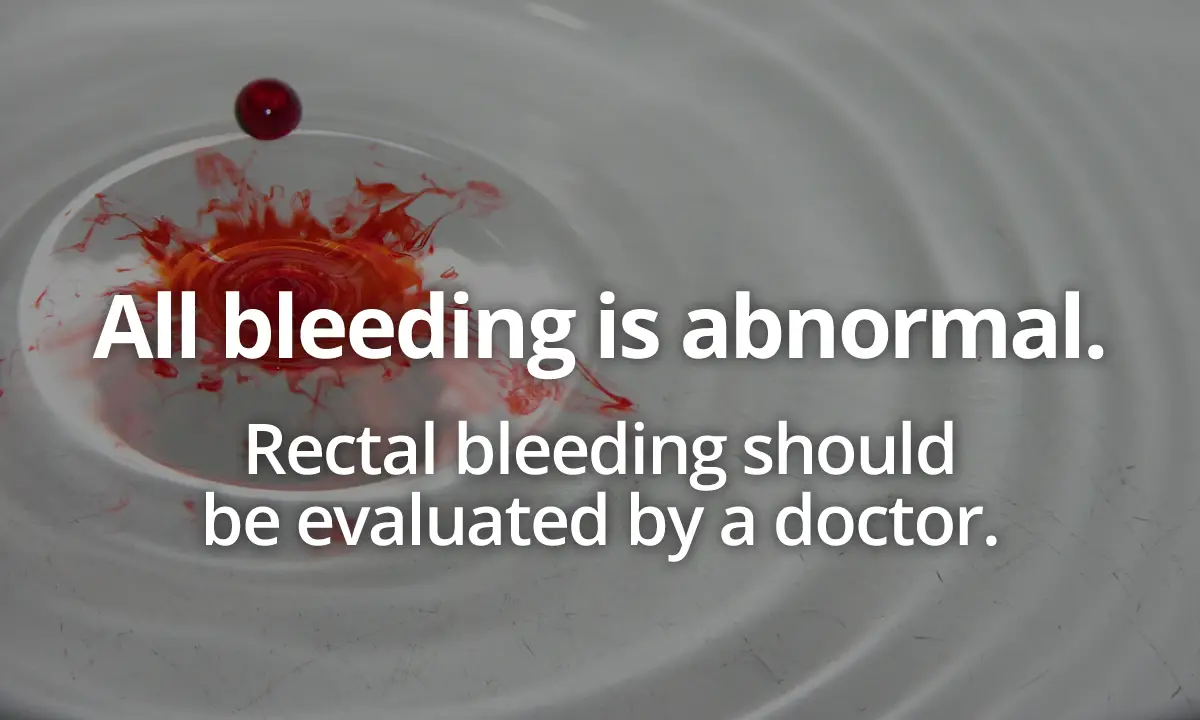Rectal bleeding can be manifested in several ways ranging from bright red blood per rectum to dark black colored stools to a trace amount of blood, which cannot be seen with the naked eye. All types of bleeding should be taken seriously. Red blood per rectum is generally a sign of outlet bleeding from anal fissures or hemorrhoids but can also be a manifestation of much more serious conditions such as colon cancer or inflammatory bowel disease. Black colored stools (melena) are generally a sign of bleeding from the upper GI tract such as peptic ulcers. Because there is no way to tell how the exact source of bleeding, an examination is needed in all cases of rectal bleeding in Plano TX.
What causes Rectal Bleeding in Plano TX?
Blood in the stool means that there is bleeding somewhere in the digestive tract. Finding blood in the toilet or on toilet paper can be very alarming. Rectal bleeding can range from seeing a few spots of blood on the toilet paper when you wipe to having a toilet bowl full of blood after a bowel movement. The most common causes of rectal bleeding are:
- Hemorrhoids
- Anal fissure (split or crack in the lining)
- Blood thinner medications (aspirin)
- Ulcerative colitis
- Crohn’s disease
- Colon polyps
- Colon cancer
- Diverticula

Is Occasional Blood in Stool Normal?
Rectal bleeding is never normal. While it is typically caused by benign conditions, the only way to know for sure is to have an evaluation. The initial part of the workup for rectal bleeding is evaluation of your current medical conditions, risk factors and medications. Then you will likely go through some type of visualization of the gastrointestinal tract to look for a source of the blood. This may consist of x-ray studies or colonoscopy.
When to see a Physician for Rectal Bleeding in Plano TX?
DON’T ignore rectal bleeding! My recommendation is, if you notice rectal bleeding, contact your physician or my office in Plano TX for an evaluation right away at 972-867-0019.
Disclaimer: The information presented on this website is not intended to take the place of your personal physician’s advice and is not intended to diagnose, treat, cure or prevent any disease. Discuss this information with your healthcare provider to determine what is right for you. All information is intended for your general knowledge only and is not a substitute for medical advice or treatment for specific medical condition
